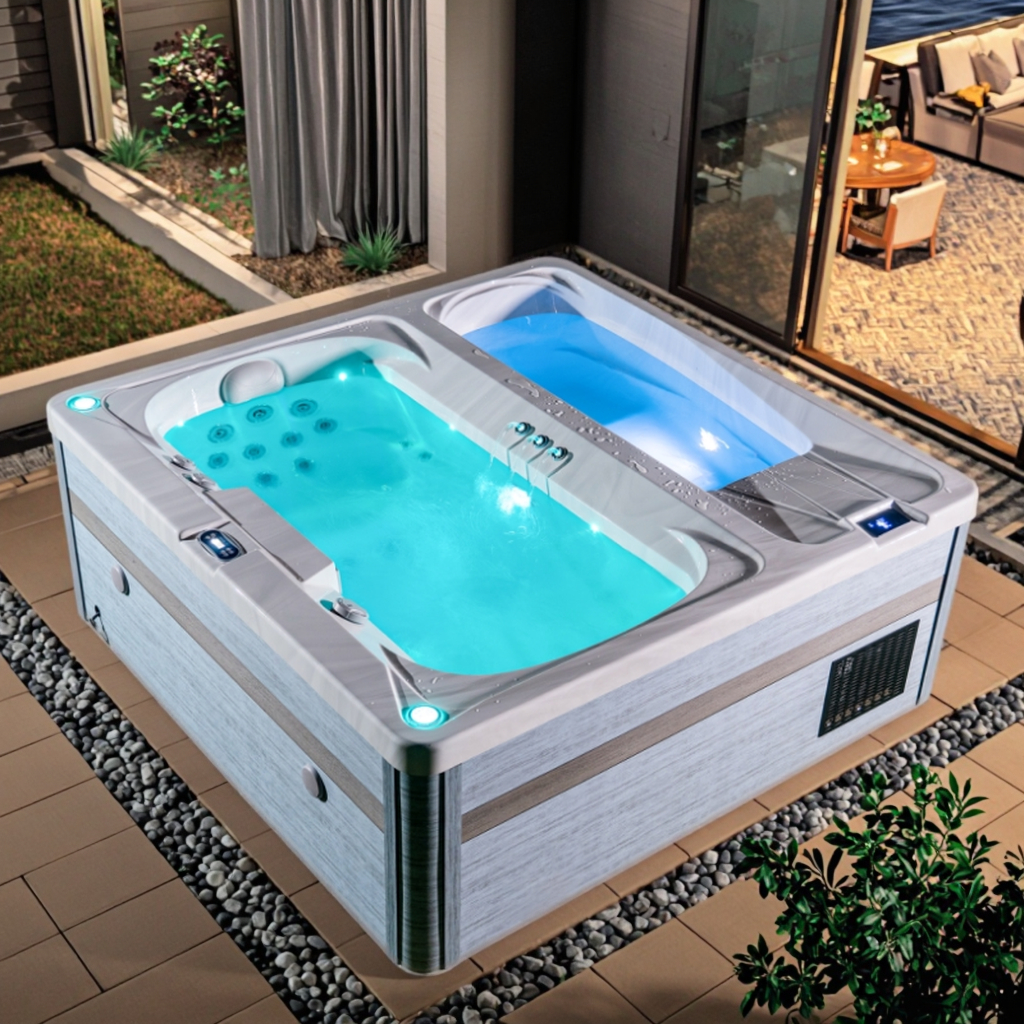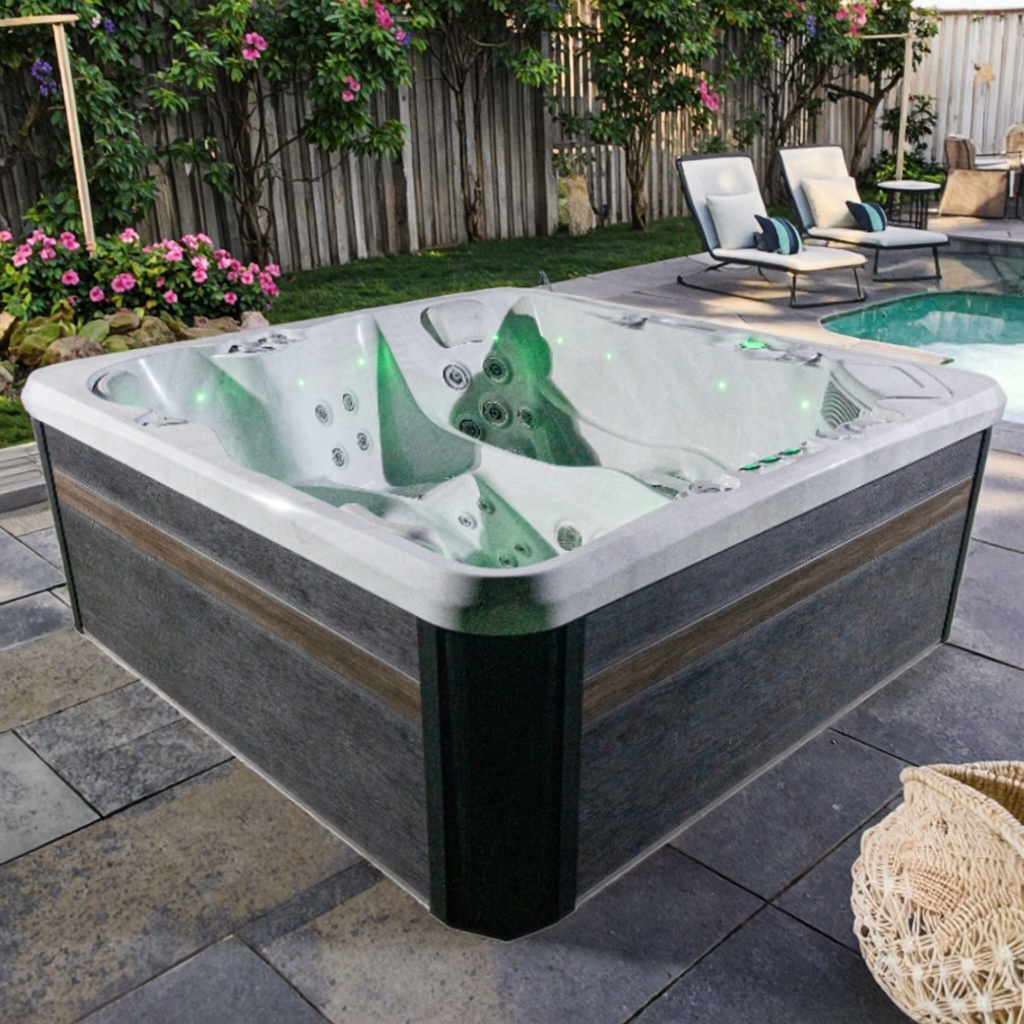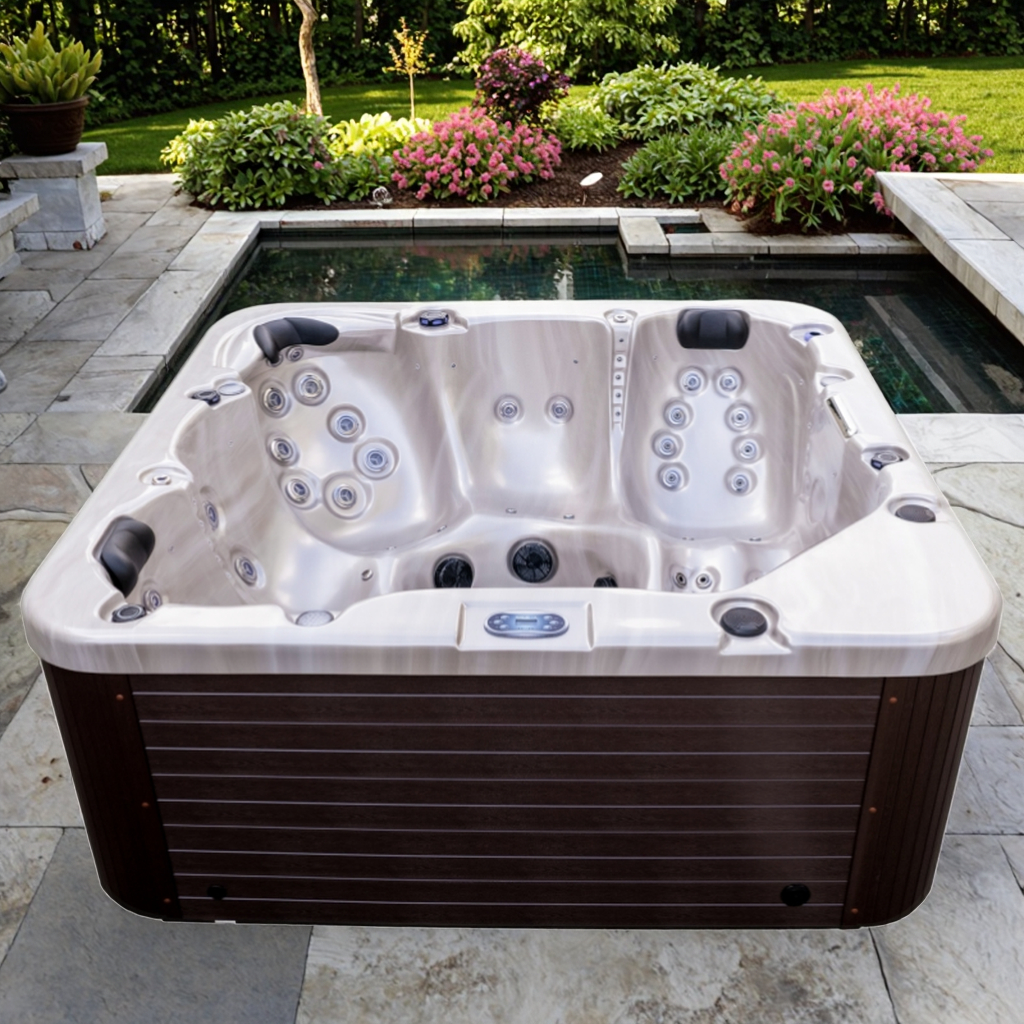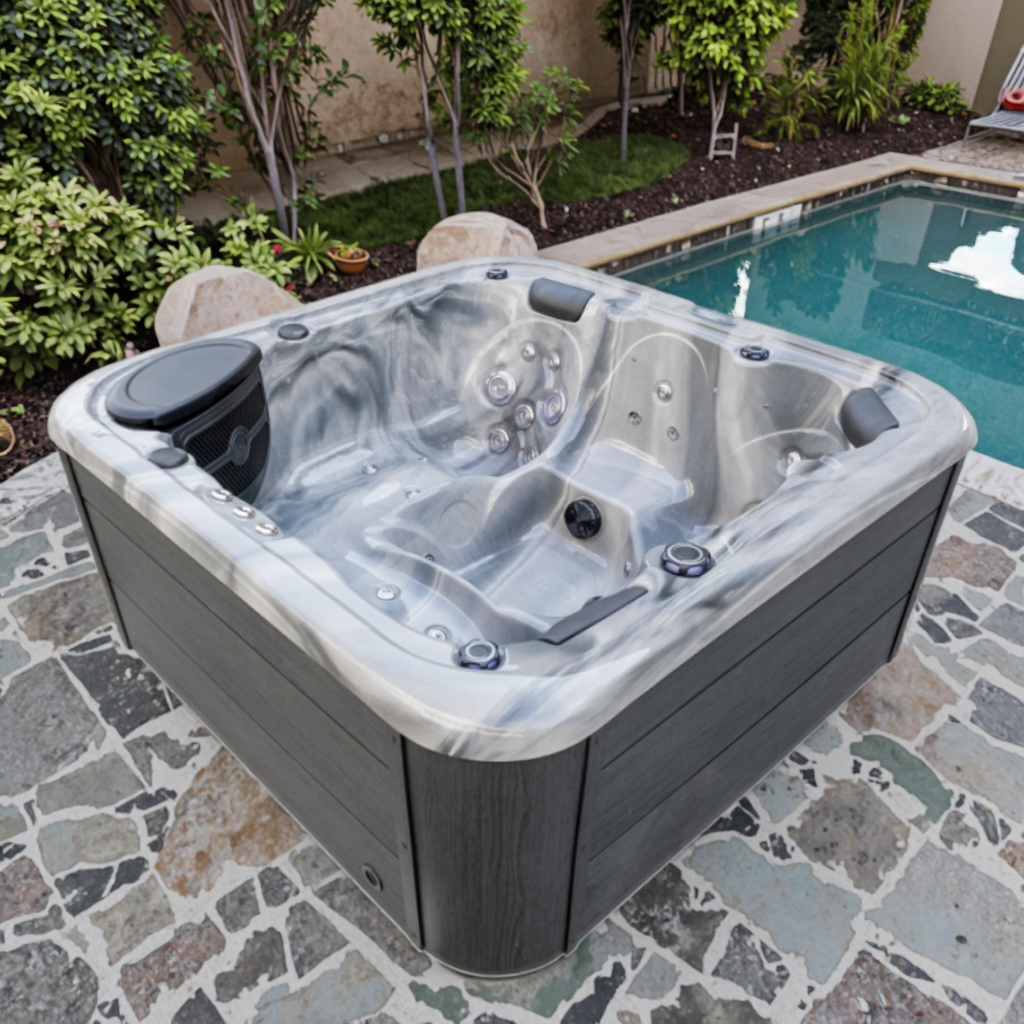
How to soften the water in an outdoor whirlpool spa tub?
2025-08-26 15:35Outdoor whirlpool spa tubs are increasingly popular for their powerful massage features and comfortable bathing experience. However, many users encounter a common problem during use: hard water.
Hard water contains high concentrations of calcium and magnesium ions, which can cause scale deposits, clog pipes, reduce heater efficiency, and even affect bathing comfort. Therefore, softening the water in an outdoor whirlpool spa tub not only extends the tub's lifespan but also enhances the spa experience.
This article will detail how to effectively soften the water in an outdoor whirlpool spa tub, focusing on the effects of hard water, methods for softening water, precautions, and maintenance tips, ensuring optimal bathing results and long-term operation.

What are the effects of hard water on outdoor whirlpool spa tubs?
1. Scale Formation
Hard water contains high concentrations of calcium (Ca²⁺) and magnesium (Mg²⁺). These minerals easily precipitate under high temperatures, forming calcium carbonate or magnesium carbonate deposits, also known as scale. Scale buildup can cause the following problems:
• Pipe clogs: Scale deposits can cling to the spa's nozzles, pipes, and filters, restricting water flow and reducing massage effectiveness.
• Heater damage: Scale deposits can coat the heating element, reducing heat transfer efficiency, prolonging heating time, and even causing the element to burn out.
• Water turbidity: Excessive scale buildup can cause the water to become cloudy, impacting the comfort of a spa session.
2. Impact on chemical balance
Water hardness affects its pH, total alkalinity (TA), and the effectiveness of disinfectants. Excessive hardness in an outdoor whirlpool spa can cause the following:
• Increased pH: Excessively hard water can increase pH, making the water more alkaline and reducing the effectiveness of disinfectants like chlorine and bromine.
• Reduced disinfectant efficiency: High water hardness reduces the activity of disinfectants, making them less effective at killing bacteria and increasing the risk of bacterial and algae growth.
• Skin and eye irritation: Water with excessively high mineral content can dry out the skin and cause eye irritation.
3. Increased Maintenance Costs
Due to scale deposits and chemical imbalances caused by hard water, users need to clean and maintain the tub more frequently:
• Filters need to be cleaned and replaced more frequently.
• More chemicals are needed to balance the water.
• Mineral deposits may damage the equipment, increasing repair costs.
Therefore, softening the water is crucial to extending the life of your outdoor whirlpool spa tub, optimizing the spa experience, and reducing maintenance costs.

How to soften the water in an outdoor whirlpool spa tub?
The main methods for softening water include using water softeners, filtration systems, chemical conditioners, and physical softening technologies. Here are some effective methods:
1. Using a water softener
• A water softener is a product specifically designed to reduce calcium and magnesium ions in water and is commonly used in home water softening systems. For outdoor whirlpool spa tubs, users can use a water softener when filling the water to reduce the hardness of the water.
• Commercially available water softeners (such as granules or liquid water softeners) can be added directly to the water in an outdoor whirlpool or spa to help reduce scale buildup.
• Resin softening filters: Some whirlpools and spas are equipped with sodium ion exchange resin filters, which remove calcium and magnesium ions as the water passes through.
Instructions:
• Before adding water, add the appropriate amount of water softener according to the product instructions.
• Allow the filtration system to run for several hours to allow the water softener to mix thoroughly.
• Retest the water hardness to ensure it is between 150 and 250 ppm (the ideal range).
2. Pre-filter the water source
If your tap water has a high hardness level, you can soften it using a water filtration device. For example:
• Whole House Water Softener: This is installed in your home water supply and can effectively reduce hard water problems over the long term.
• Portable water softener: Before adding water, use a filter with activated carbon, KDF filter, or softening resin to reduce the mineral content.
Instructions:
• Before filling your whirlpool spa tub, connect a water softener to the water line or hose.
• Allow water to flow through the filter into the tub to reduce hard water problems at the source.
3. Chemical Conditioners
To adjust the chemical balance of your water, you can use specialized chemicals to reduce hardness, such as:
• Chelating agents: These bind to calcium and magnesium ions in the water, preventing them from depositing and forming scale.
• pH and total alkalinity adjusters: These adjust the pH and alkalinity of your water to maintain optimal water quality (pH 7.2-7.6, alkalinity 80-120 ppm).
Instructions:
• Test your water for hardness and pH first.
• Based on the test results, add the appropriate amount of conditioner as directed.
• Allow the water to circulate for at least 30 minutes, then test the water again.
4. Regular Water Changes and Cleaning
Even with a softener and filtration system, the water in your whirlpool spa tub can gradually become hard. Therefore, regular water changes and pipe cleaning can effectively reduce scale buildup.
• Perform a complete water change every 3-4 months, especially if water quality is difficult to control.
• Use a specialized pipe cleaner to remove mineral deposits from the inner walls of the pipes.
• Clean the filter weekly to prevent clogging caused by hard water.

Whirlpool spa tub: Water softening tips
1. Don't over-soften the water
While softening water can improve the spa experience, water hardness should not be reduced too low. If the hardness of the water in an outdoor whirlpool spa drops below 50 ppm, it may:
• Cause the water to become too corrosive, damaging the pipes and heating elements.
• Impair the effectiveness of the spa jets and cause uneven water flow.
• Maintaining a water hardness between 150-250 ppm is recommended for optimal performance in your whirlpool spa tub.
2. Avoid using softeners containing phosphates
Some water softeners contain phosphates, which can cause algae growth and affect water quality. Therefore, when purchasing a water softener, choose one that does not contain phosphate.
3. Monitor Water Quality and Perform Regular Maintenance
After softening the water, it's still necessary to regularly test the water's pH, alkalinity, and disinfectant concentration to ensure it remains within safe limits.

What makes Lovia Spa one of the top spa brands in China?
Founded in 1989 and located in Guangzhou, China, Guangzhou HuanTong Industrial Co., Ltd. has established itself as a leading spa manufacturer and supplier. Our "Lovia Spa" brand, launched internationally in 2004, is now recognized as one of the top 5 spa brands in China as of 2019.
With a factory covering 45,000 square meters, over 200 skilled workers, and over 20 industry experts, we ensure high-quality, competitively priced spa products. Customers can buy directly from our factory and benefit from discount prices, bulk purchasing offers, and fast quotes for customized designs.
